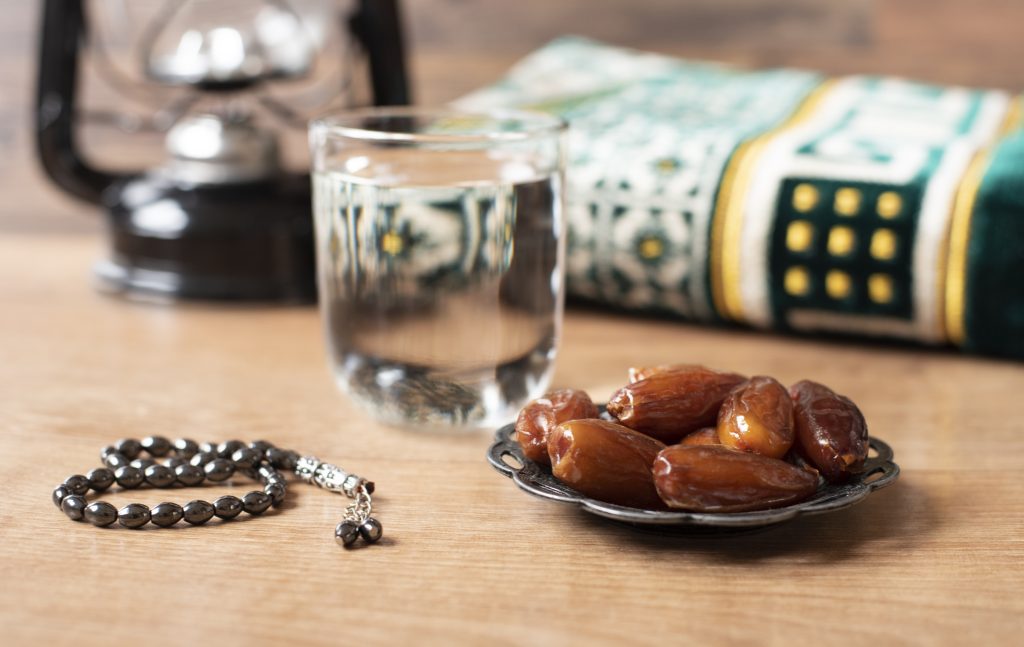Celebrating Ramadan As A Working Mother
RECRUITMENT • Apr 5, 2022

Ramadan is the holiest month of the year within Islamic culture. For Muslims the world over, it’s a time of spiritual growth and introspection, as well as a chance to spend time with loved ones and give back to the community. The celebration marks the time that Allah sent an angel to the prophet Muhammad to reveal the Quran, also known as the ‘night of power’ or ‘Laylat Al Qadar’ in Arabic. Today, millions of Muslims celebrate Ramadan by fasting between sunrise and sunset each day, along with spending time in prayer and performing good deeds. By doing so, many feel that they are able to fully devote themselves to their faith, as well as learn greater patience and compassion.
Of course, the world looks rather different today than it did when Ramadan was first observed back in 624 BCE. This means that many of today’s Muslims must contend with the realities of modern working life during their period of fasting, which can add another layer of challenge to an already physically demanding situation. To find out more about how the festival of Ramadan intersects with working life, we spoke with Gleeson’s very own billing and credit officer Asma Kauser, who observes the festival along with her husband and three children.
Family life during Ramadan
Speaking of the personal significance that Ramadan holds for her, Asma explained, “I feel that Ramadan is really a time to increase my Sabr (patience), closeness to God, and generosity towards others. It’s about enduring the discomfort and hunger that many people in the world are forced to live with daily, and gives me the opportunity to cleanse my insides both physically and spiritually.”
Although many outside of the Islamic faith associate Ramadan only with fasting, there’s much more that goes into observing the festival than this act of physical sacrifice, and the logistics can prove especially challenging. As Asma explains, “Particularly for mothers like me, Ramadan is a real test of time management and juggling work and family commitments. For example, here’s what a typical day looks like for me during this time: I will wake up around 3am and begin preparing food for the family, before closing my fast at 4am and observing morning prayers at 5am. Then, I will sleep for a couple of hours before getting up and taking the kids to school and starting work. After I return home, I will begin preparations to open fasting (known as Iftar), which would usually be around 8.30pm. Traditionally, we’ll enjoy fresh dates and fruit juices, to gain some healthy sugars for energy. Iftar is a whole family affair, so my kids will start setting the table or the mat as the sun sets, and then we’ll all go to pray. After, we’ll enjoy dinner whilst talking, laughing and honouring one another. It’s a wonderful time for friends and family to enjoy the peace and simply absorb each other’s company.”
After a long day of fasting, you’d be forgiven for assuming that Islamic families would over-indulge, or make less than healthy meal choices. However, Asma tells us, “Ramadan is a great opportunity to break the chain of bad eating habits. Our diet will be a simple meal, not a feast, such as traditional Indian meals containing lots of fresh fruits, vegetables, and healthy proteins from milk and cheeses.”
The realities of fasting at work
Asma, like many Islamic working mothers, must contend with the difficulties of fasting as she performs her regular office duties. She tells us, “During Ramadan in particular, I’m incredibly grateful for Gleeson’s flexible working policy, as it allows me to adjust my schedule accordingly. For instance, sometimes I choose to work through lunch so that I can finish earlier. I also have the option to work from home as and when I choose, which is very convenient. Management is also very understanding about my requirements, which makes things much easier – having a supportive working environment really does make all the difference. However, dealing with fasting at work really isn’t as difficult as you might imagine. As long as I’m making the right food choices, don’t indulge in oily or junk food, and drink plenty of water, then I’m able to perform my job at the same high standard.”
“I think it’s a big misconception that people who observe fasting spend the whole day struggling. For me, Ramadan is all about self-discipline and staying calm. Going without food and water for a few hours is just a small sacrifice, and one I’m happy to make. That’s not to say that I don’t experience any challenges, however – I tend to get caffeine withdrawal headaches for the first few days, and keeping away from foods that are high in sugar and salt can take some self-discipline. Adjusting to the change in my sleeping patterns can also take a week or so.”
Supporting Muslim colleagues during Ramadan
Reflecting on how colleagues and management can best support those who undertake fasting during Ramadan, Asma commented, “I think the key is understanding. Although you likely won’t even notice a dip in concentration or productivity in those who are fasting, if you do, try to be patient. It can also be helpful to ask which times are most suitable before scheduling meetings, and be mindful of the fact that a person’s work schedule may alter slightly during this time. Additionally, check in with your fasting colleagues; maybe ask them how Ramadan is going, or see if they need any support. Don’t feel bad for Muslim colleagues or feel like you need to express sympathy for the hardships of fasting – it’s a choice that brings us fulfilment and peace. It’s also important to bear in mind that there are reasons some Muslims are unable to fast, such as pregnancy or ill health. These details may be personal, so if you notice a Muslim colleague is eating as usual, don’t pry. Finally, if you have respectful questions, it’s okay to ask – Ramadan is a joyous occasion and most of us are happy to speak about it with non-Muslim friends and colleagues.”




